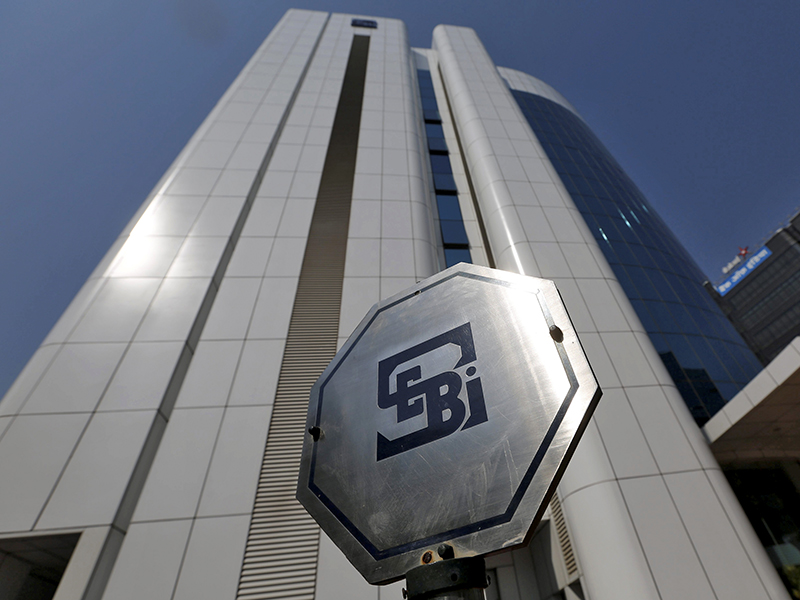SEBI panel to consider big bang reforms in November 26 meet; T-1 settlement, zero demat balance on the cards
A Sebi-appointed advisory panel may take up some big bang reforms for discussion during its meeting on Thursday. On the agenda could be reducing settlement days to T+1, capital adequacy norms for brokers and banks needing separate entities to become clearing members
 Image: Shailesh Andrade/ REUTERS
Image: Shailesh Andrade/ REUTERS
The Securities and Exchange Board of India (SEBI)-appointed Secondary Market Advisory Committee (SMAC) will discuss big bang reforms for the capital market during its meeting on November 26.
SMAC represents all market participants, including exchanges, brokers 0and Depositaries. This will be the panel's first meeting this year due to the disruption caused by Covid-19. After deliberation by the SMAC, the regulator will take these issues to the SEBI board for approval.
The committee may have four key points of discussion on the agenda for its meeting on Thursday:
1. Reducing settlement days to T+1.
2. Final call on zero amount of a client to be taken every 90 days
3. Capital adequacy norms for a broker
4. Banks needing a separate company to become clearing members
T+1 settlement
SEBI is planning to cut down settlement days from T+2 to T+1. India would be the second market to implement this measure, should it go forward.
The regulator has discussed the T+1 settlement mechanism on various platforms but faced resistance from market participants, especially Foreign Portfolio Investors. However, SEBI has firm grounds for this reform as less settlement time means less risk of a default by brokers.
Speaking to Moneycontrol, a SMAC member said: “If Sebi makes settlement happen on T+1 evening instead of T+1 morning, this measure could be implemented in the market.”
“It will make clients keep their trading and Demat accounts with the same brokering house as they will not get enough time for stock transfers,” said Ravi Singhal, Vice Chairman, GCL broking firm. “But T+2 settlement is causing delays in the settlement process, hence the seller gets to pay in two days.”
Singhal added: “T+1 settlement is good for seller clients as their funds will be free the next day and hence they can better utilise their funds. It is also good for brokers, as they have to collect margin for only one day, so it will improve overall churning of regularly traded clients.”
FPIs have reservations that implementation would be difficult because of the time difference. This measure may impact volume on the cash market as FPIs account for more than 40 percent of the market.
FPI association ASIFMA (Asia Securities Industry & Financial Markets Association) has written to the Finance Minister seeking to stop this measure.
Second discussion point
SEBI has a plan to make the funds account of all clients in the books of the stockbrokers' nil once in 30 or 90 days, depending upon the preference of the clients.
The regulator is toying with the idea of making the account nil and not permitting debit balances as settlement. The limit of Rs 10,000 is also proposed to be done away with.
In the current framework, with the introduction of pledge systems, securities do not currently leave the demat account of the client. Therefore, the settlement of securities is no longer applicable. However, a margin in the form of funds continues to lie in the books of the broker and is subject to settlement.
Periodic settlement has been a norm since December 3, 2009. It requires the broker to return excess funds and securities to the clients. However, a client going into debit was also considered a settlement, as with a debit balance no account is due by the broker and it is the broker who has to take the money from the clients.
Further, 225 percent of the margin dues and an additional amount of up to Rs 10,000 could be retained by the broker subject to client consent. For example, if a client has a credit balance of Rs 1 crore with the broker, and margin dues on open positions of Rs 10 lakh, the broker can hold back up to Rs 22.5 lakh and has to compulsorily return the remaining Rs.77.5 lakh to the client as settlement.
This new norm is now under consideration, especially after the Anugrah Broking default, where client money was lying with the broker for years. SEBI has also received several complaints about a large broker, who transferred client money into a liquid fund just before settlement dates.
An office-bearer of the broker association involved in the discussion said: “I believe that Sebi has got its heart in the right place. As long as the clients are not inconvenienced in their trading experience, we will support the Sebi proposals. The pledge-repledge system for example has been amazing in identifying the bad sheep in the market. These bad actors deserve exemplary punishment for tarnishing the image of the entire community. Monitoring of funds is also essential, and brokers have never objected to any measures that increase transparency.”
Moneycontrol had reported on October 29 that SEBI is considering strengthening settlement norms.
Capital adequacy norms for brokers
During a recent conference of the Confederation of Indian Industry (CII), Uday Kotak, CII President and Chairman of Kotak Mahindra Bank, raised the issue of capital adequacy norms for brokers. Kotak told SEBI chairman Ajay Tyagi that the regulator should come out with a capital adequacy ratio for granting of a license to broking firms.
Separate entity to become clearing members
Currently, banks themselves become clearing members, which creates a conflict of interest. So, SEBI is planning to create norms for a separate company for clearing members.
Original Source: https://www.moneycontrol.com/news/business/markets/sebi-panel-to-consider-big-bang-reforms-in-november-26-meet-t-1-settlement-zero-demat-balance-on-the-cards-6154801.html